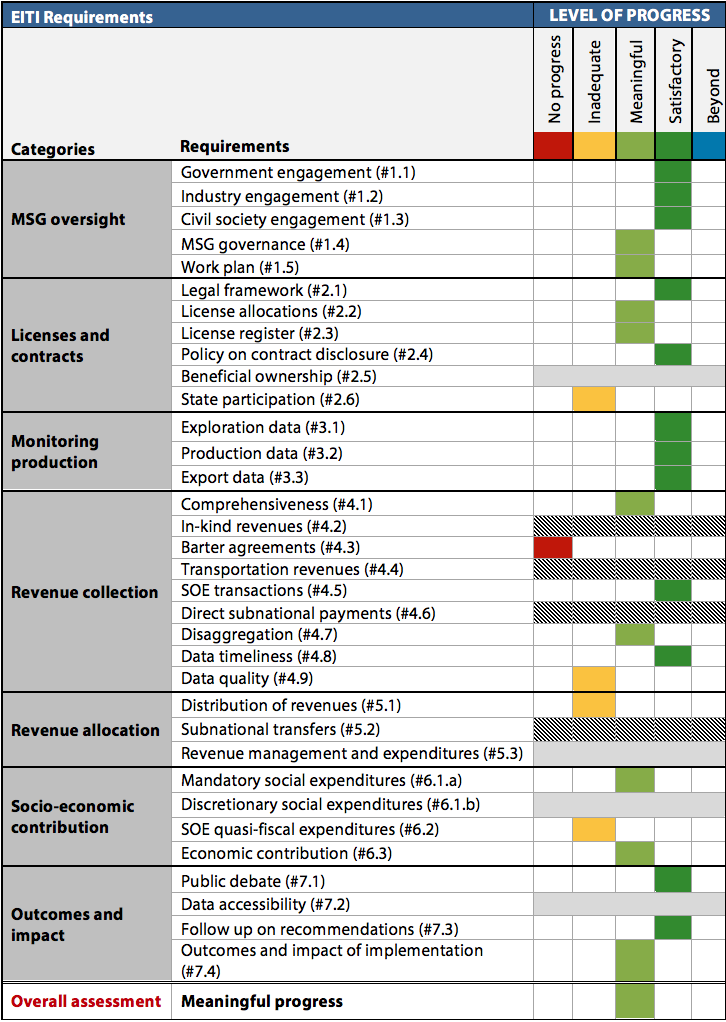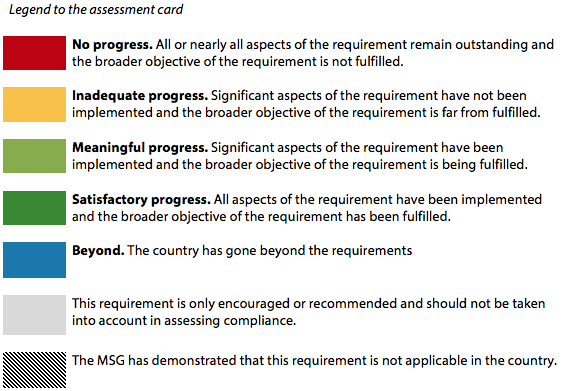
EITI Board recognises the pioneering efforts of Liberia in implementing the EITI and sets out next steps
EITI Board recognises the pioneering efforts of Liberia in implementing the EITI and sets out next steps
Liberia undergoes first EITI Validation under the EITI Standard and demonstrates meaningful progress despite Ebola disruption.
Wednesday 24 May 2017 – Liberia was one of the first countries to begin implementing the EITI in 2005. Liberia’s recent Validation has demonstrated “meaningful progress” in implementing the EITI Standard. The decision was made on Wednesday by the EITI Board, who noted the “pioneering” efforts done by the country and the role it has played in the development of the Standard over time. According to the documentation backing the assessment,
“Liberia’s pioneering implementation of the EITI has had a direct impact on the development of the EITI Standard and been an inspiration to other implementing countries operating in particularly difficult environments. The initial findings of this Validation exercise suggest that Liberia EITI (LEITI) has taken advantage of the political commitment that arose from the devastating civil war to build a platform that has generated real change.”
Liberia - shaping the Standard
Liberia was the second country in the world and the first in Africa to have demonstrated compliance with the EITI Rules back in 2009. Liberia did much to shape the subsequent and much more comprehensive EITI Standard by continuously going beyond some of the basic requirements. This is the first time that Liberia’s progress has been assessed against the EITI Standard.
“Even before the introduction of the EITI Standard”, the initial assessment reads, “Liberia’s EITI reporting extended beyond EITI Reporting to publication of post-award process audits of licenses and permits, beneficial ownership reporting and simplified contracts. It is fair to say that Liberia has had a direct impact in the development of the EITI Standard by providing proof of concept for a number of requirements.”
Corrective actions and recommendations
Referring to Liberia’s Validation, Fredrik Reinfeldt, Chair of the EITI, said:
“Political will led Liberia to pioneer a number of the requirements in the current EITI Standard, and political will is what will be needed to ensure that Liberia remains at the forefront of implementation. The Board’s corrective actions should help Liberian stakeholders direct their efforts in order to continue implementing the Standard in a way that leads to better governance of the extractive sector”.
The Board identified 16 corrective actions that Liberia will need to make progress on ahead of the next Validation in 18 months. These concern areas in the standard where Validation showed that Liberia had not made satisfactory progress to date and included challenges along all stages of the extractive industry value chain – from licenses and contracts, to monitoring production, to revenue collection and allocation, and to socio-economic contribution.
Applying lessons from Validation
According to Eddie Rich, Deputy Head of EITI:
“Validation under the EITI Standard creates a framework for resource-rich countries to consider how to improve their management of the extractive sector. Liberia will look at the corrective actions and recommendations from Validation to see how best to apply them for their particular circumstances.”
As part of the team that provides support to Liberia EITI from the International Secretariat, Regional Director Pablo Valverde added
“It’s exciting to see how Liberia is already taking some of the early lessons from Validation and using them to inform their next report. Liberia has always shown leadership in implementing the EITI and we’re looking forward to seeing how this Validation will spark new discussions among stakeholders to keep improving”.
Scorecard


Notes
- The EITI is a coalition of governments, companies, civil society groups, investors and international organisations. Learn more at eiti.org.
- EITI is chaired by Fredrik Reinfeldt. Mr Reinfeldt was the Prime Minister of Sweden (2006-2014).
- 52 countries are members of the EITI. No country has yet made satisfactory progress with the 2016 EITI Standard. See the list of countries at www.eiti.org/countries.
- Validation is the EITI’s independent evaluation mechanism. It assesses countries against progress made in meeting the 2016 Standard.
- The Board decision in full, including corrective actions and impact of the EITI in the country, can be found here: eiti.org/validation/liberia/2016
- The reports giving an extensive review of Mali's extractive sector can be found here: eiti.org/document/validation-of-liberia-2016-documentation
- The Board has taken decisions on the status Mali and Liberia on 24 May 2017: eiti.org/document/validation-schedule-decisions
- See here for a full explanation of the various levels of progress under the EITI Standard.
For further information about the EITI in Liberia, please visit the country page on the EITI website and Liberia's own EITI website.
Contenido relacionado





